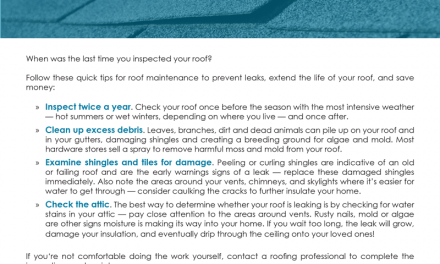So you want to buy a home! Great. Step one: save for a down payment.
Or, you can skip step one and let investors do the saving for you!
Primarq, a brand new housing “stock exchange” based in San Francisco, sets up a homebuyer with investors who purchase “shares” in the homebuyer’s residence. This provides the homebuyer with extra cash to complete their 20% down payment. In return, investors receive a percentage return on the home’s appreciation (or depreciation) upon the eventual home sale, be it months or years down the line. This program also works for underwater homeowners who need cash to return to positive equity so they can refinance into better loan terms. Primarq receives a fee of 5% of the amount funded by the exchange.
Primarq’s housing stock exchange is more of the same for investors looking to get in on the single family residential (SFR) industry. However, Primarq’s exchange poses plenty of problems for the homeowner and the investor alike. [See first tuesday Form 155-2: Equity Sharing Addendum]
The biggest problem? It just doesn’t work.
This is essentially a co-ownership (or shared equity) deal, wherein the “homeowner” is only part-owner of their residence. The potential for legal entanglements between co-owners is high.
What if the homebuyer wants to refinance? The investor has the power to refuse a refinance.
How do the homeowner and investor divide up profits when substantial improvements are made to the home after it is purchased? The investor has a process to divide up the value of the property upon sale.
What happens if the homeowner can no longer make mortgage payments? The investor can force the sale of the property.
The homeowner is forbidden from renting out the property, and may be required to purchase additional homeowners insurance. And the investor has a say in setting the eventual asking price when the property is sold.
Is this really true ownership?
These co-ownership schemes are needlessly convoluted, particularly when a homeowner can simply apply for a Federal Housing Administration (FHA)-insured loan if they really are not able to save funds for a down payment (not that FHA-insured loans are the first choice for homebuyers).
It is much better to spend the extra years saving for a full 20% down payment. This gives the homebuyer skin in the game, investing them in their home and creating pride of ownership. The alternatives are to:
- beg your parents or your friends for a down payment gift;
- take out costly private mortgage insurance (PMI) or mortgage insurance premiums (MIPs);
- seek seller carryback financing; or
- enter into sketchy co-ownership agreements like Primarq’s.[See first tuesday Form 300: Financial Disclosure Statement – for Entering into a Seller Carryback Note]
I’ll take the extra time to save for a full down payment, thank you very much.



















Hi. Just saw this post. The process is a bit more thought out than described. The relationship between the homeowner and the investor certainly includes provisions upon certain events, such as improvements, disposition, refinancings and even mortgage defaults. We have been very cognizant of the “life cycle of homeownership”, as well as the relationship between the “owners” and the mortgage lender. In fact, do understand the absent additional equity, the homeowner finances the home with additional debt, which given advance rates, may require mortgage insurance, an additional cost. And in the case of a sale, do you ever see the bank willing to absorb downward price movement or transaction fees? There is a reason and a desperate need in the market for the use of equity financing, as long as it’s structured appropriately. Do believe we have done that. Lastly, think about the cost of your debt financing — you pay monthly on the note, say for 60 months. Ever compare the total payments made (and currently) to what level of appreciation might you need to offset those payments. Wouldn’t it be grand to borrow less, put the saved money into a retirement fund or education fund, earn interest /income on it, particularly if you don’t know what the property may be worth five years out? As we do in corporate finance, weigh the cost of capital over the course of time. Sometimes debt is cheaper, sometimes equity is cheaper. Need to change the perspective of “co-ownership” to equity vs. debt financing. Cheers.
I beg to disagree.
An equity partner is a GREAT idea for a buyer with zero cash down payment.
It’s far far better for one to receive half the appreciation as opposed to renting and get zero. ( and an other persons capital) .
A win -win situation and one where First Tuesday is wrong as usual!